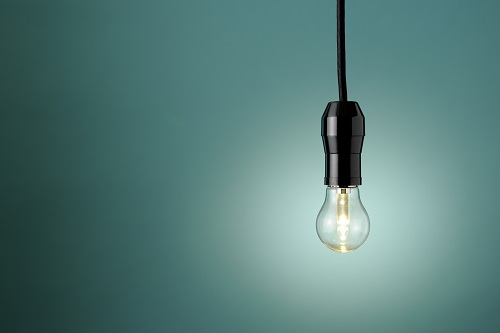An Update on Singapore’s Adoption of Hydrogen
Since our previous article, "The push for adopting Hydrogen-Fuel Cell Vehicles in Singapore", where we have written on Singapore’s push to adopt Hydrogen as an alternative energy source, an update on Hydrogen is timely on the heels of several new initiatives in Singapore.
At the Singapore International Energy Week 2019, Minister for Trade & Industry Chan Chun Sing spoke on Singapore’s energy sources and recognised the need to consider low-carbon alternatives such as Hydrogen into Singapore’s energy mix.
1. MOUs
Several memorandum of understandings (MOUs) have been signed between industry experts to develop ways to deploy and commercialise Hydrogen:
- In March 2020, five Singapore and two Japanese companies have signed a MOU to study the feasibility of importing and utilising Hydrogen in Singapore, using technology developed by the Japanese companies to safely transport Hydrogen [1].
- In June 2020, Keppel Data Centres and Mitsubishi Heavy Industries signed a MOU to jointly explore the implementation of the Hydrogen powered tri-generation plant concept for data centres in Singapore [2].
2. Initiatives by Government and Government-related bodies
The Government and Government-related bodies have also been involved in exploring Singapore’s Hydrogen scene and the mass deployment of Hydrogen in Singapore:
- The Prime Minister’s Office (PMO) has awarded a contract in September 2019 to American engineering giant Kellogg Brown & Root for a “Consultancy Study on Hydrogen Imports and Downstream Applications for Singapore” [3]. This will involve market and technical studies on the potential sources of Hydrogen imports based on costs, availability, technical feasibility and supply security up to 2050 [4].
- Government-owned electricity and gas distribution company, SP Group, has piloted a Hydrogen Energy System in October 2019, in partnership with investment firm Marubeni Corporation and Tohoku University in Japan. The system harnesses solar energy to release Hydrogen, through electrolysis, which will be used to generate electricity during periods where there is no light, such as at night or cloudy days. [5]
- The Energy Market Authority of Singapore (EMA) has collaborated with Korea Institute of Energy Technology Evaluation and Planning (KETEP) to launch a joint grant call for innovative solutions to enable the use of Hydrogen for power generation [6]. The solutions should aim to address the storage, transportation and delivery of Hydrogen gas in a safe and cost-effective manner, and energy-efficient and emissions-free pathways for Hydrogen production.
3. Industry associations
New industry associations have also formed, reflecting keen interest in Hydrogen amongst local players. These include the APAC Hydrogen Association and the Hydrogen and Fuel Cell Association of Singapore (HFCAS) [7] . Bird & Bird Singapore is proud to have been involved in the founding of the HFCAS in November 2019 and is the legal advisor to HFCAS.
"HFCAS is committed to support the push for green hydrogen as one of the low carbon alternatives for Singapore and continued development and application of Hydrogen and Fuel Cell activities in Singapore." said Noel Chin, who is the President of HFCAS.
"We are currently working intensely on enhancing the profile of hydrogen, and coordinating hydrogen and fuel cell industrial and commercial activities such as pilot trials".
4. Generation
In line with the Government's mission to lead and support energy transformation, Singapore continues to explore low-carbon solutions, (including hydrogen) to help reduce Singapore's carbon footprint. In the midterm, for instance, Combined Cycle Gas Turbines (CCGTs), which provide stable and secure baseload generation, may potentially switch from natural gas feedstock to a hydrogen blend in the future as long as energy efficiency and cost considerations are not compromised.
5. Regulatory
The current regulatory regime does not accommodate the use of Hydrogen as an energy source, but only governs the use of Hydrogen as an industrial resource.
As the outcome of the consultancy study on Hydrogen imports and downstream applications for Singapore has not been published, no specific laws or policies have been announced to boost the market uptake of hydrogen or fuel cell technologies. However, the EMA has introduced a regulatory sandbox framework to provide a 'safe space' where interested parties can experiment with innovation solutions without being subjected to the prevailing regulatory requirements. There are some basic safeguards in place, such as a set timeline for and a limit on the consumers to limit the risk to consumers and the industry. EMA also offers R&D Grants to support industry innovation for sandbox trials. For instance, it is conceivable that trials for hydrogen powered data centres or trials to adopt hydrogen without natural gas pipeline modifications would be good sandbox projects for Singapore.
Laws to regulate the deployment, import and use of Hydrogen (given that it is highly flammable and deemed a “dangerous substance” under Singapore’s workplace health and safety laws) will likely be required in due course if the Government believes that Hydrogen has a viable role to play in Singapore's power industry.
Conclusion
Although Singapore is still at the nascent stage of feasibility studies, pilot projects and sandboxed trials, the above initiatives mark an important step forward to diversifying Singapore’s energy sources for energy security.
With traditional renewable energy sources (such as wind and solar) posing issues on intermittency and the need to decarbonise and to reduce reliance on fossil fuels, Hydrogen is making good headway in Singapore as the city state transitions towards a low-carbon economy. The Hydrogen industry will have to step up to ensure that Hydrogen emerge as a practical, reliable and cost-effective solution to Singapore's energy needs.
This article is produced by our Singapore office, Bird & Bird ATMD LLP, and does not constitute legal advice. It is intended to provide general information only. Please contact our lawyers if you have any specific queries.
[1] https://www.straitstimes.com/business/economy/7-firms-sign-mou-to-study-hydrogen-as-green-energy-source-for-singapore
[2] https://www.kepcorp.com/en/media/media-releases-sgx-filings/keppel-and-mitsubishi-heavy-industries-to-jointly-explore-hydrogen-powered-tri-generation-plant-concept-for-data-centres-in-singapore/
[3] https://www.straitstimes.com/singapore/transport/singapore-looking-to-tap-hydrogen-as-a-fuel
[4] https://www.kbr.com/en/insights-events/press-release/singapore-selects-kbr-and-argus-major-hydrogen-feasibility-study
[5] https://www.spgroup.com.sg/wcm/connect/spgrp/f5e2347b-0b1a-4260-b5e3-b71b8a2a22c4/%5B20200229%5D+The+Straits+Times+-+H+is+for+clean%2C+alternative+power.pdf?MOD=AJPERES&CVID=




